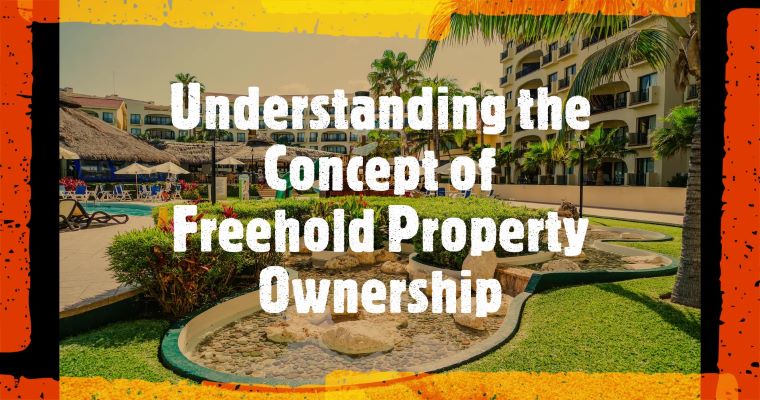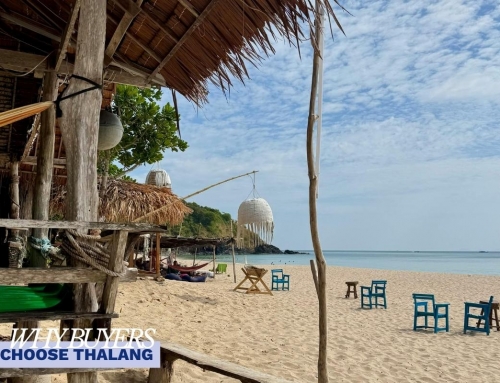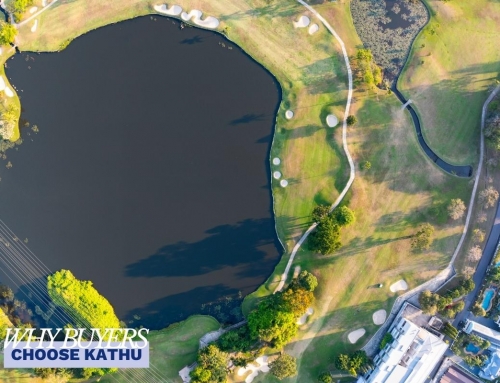Buyers of Phuket property can choose between the different forms of ownership that are available. These may vary depending on the type of building. This article focuses on freehold property, and aims to give a clear explanation of what this means in Thailand.
We have discussed at length in other articles the various legal structures for foreigners buying property in Phuket. Because of the ambiguities that can exist, we have written extensively about what exactly a leasehold is in Phuket.
This is also outlined in detail in our Thai Residential Phuket Property Guide.
To recap, in the simplest terms, a leasehold in Thailand is just another name for a long-term rental. Thai Leaseholds have a maximum duration of 30 years, and are effectively nothing more than a rental of that property for a 30-year period.
A freehold, on the other hand, is a truer form of ownership. So we will explain here why it makes far more sense to buy a foreign freehold property than to take out a lease. Whether that property is a villa, house, bungalow or condominium, buyers of Phuket real estate should aim for freehold ownership. In fact, as the Phuket property market has evolved, there are now literally hundreds of new projects, with huge choices in styles and price ranges, offering Phuket condos for sale.
You may also want to read this article on owning a leasehold:
The Pitfalls of Buying a Condominium Leasehold Unit
Where Did Freehold Originate?
The word “freehold” comes from the Middle English period (ca. 14th-15th century), and was a translation of the Anglo-French “fraunc tenement”. Fraunc meant “free,” or a free man, while Tenement referred to immovable property. In simple terms, freeholders owned their property lock, stock and barrel, and had the right to pass it on to their heirs.
In feudal England, serfs paid a freeholder for the privilege of living on their land. The compensation usually took the form of crops grown or livestock tended on the plot of land occupied by the serf and his/her family. If the serf was unable to pay then the whole family was sadly evicted.
A serf was not a slave, but he also did not enjoy complete freedom. Serfs were tied to the land, so if the land was sold, the new owner (freeholder) was also acquiring the services of all the serfs who worked that land.
The landowner on the other hand, was a “freeman”, and the land or estate was his “hold”. But applying the much later use of the word “hold” – a limit or restriction – probably makes the concept of freehold easiest to understand.
In other words, the rights of the owner are not being limited, which includes the unlimited right of beneficial inheritance of that land.
Freehold vs. Leasehold Ownership (in Phuket, Thailand and Elsewhere)
Freehold property is probably the most common form of ownership in the world today, and the easiest to understand. When buying a freehold, you have a very clear idea of what you will own.
Freehold tends to mean the same thing the world over. It means that the owner of the freehold title has full exclusive rights and possession of the property in perpetuity (i.e. forever). They own the bricks, the mortar, windows, toilets, patios, and most importantly, the land. Forever.
A freehold owner makes every decision related to the property. They decide how it is used, the state of repair in which it is kept, whether it is occupied or vacant, rented or sold. As long as local zoning laws don’t prevent them, they can even paint it pink, with yellow spots and purple flowers.
They can even go crazy on the walls, windows or roof with a sledge hammer. They can do all of this this because they own it, and no one else can tell them how to look after their own property.
The Confusion for Leasehold Condo Owners in Phuket
Foreign freehold condominiums in Phuket are pretty straight forward, but the leaseholders of Thailand villas and condos (especially in Phuket) often have no real idea of what they own. Or if they even own anything at all?
A variation of leasehold ownership is still commonplace in some countries, but tends to be either extreme in duration (such as leases up 999 years in the UK), or there is an understanding that the lease will be easily renewable upon expiration, with just a small re-registration fee to be paid (as is the case in China).
For the most part, the owners will maintain the right to live there indefinitely, and the property can also be sold by the lessee at any time for the fair market price. This form of leasehold is accepted by most as ownership because the sense of permanence you have is not far removed from that of a freehold owner.
This is not the case in Thailand. At the end of a 30-year lease in Thailand, the lessee must vacate the property.
Sadly, leasehold condo owners in Phuket have been given terrible advice, and believe they have purchased something akin to a freehold unit.
It was never explained to them that the only thing they have bought is 30-years exclusive occupation of the condo, and that it is possible they will not receive an extension beyond that.
The Main Advantages of a Freehold Phuket Property
These ambiguities associated with Phuket leaseholds are not an issue for freehold owners. There is no time constraint – the home is yours for as long as the building is standing, which could be many hundreds of years from now.
The advantages of freehold property ownership are not rocket science, not least of which, if you own something outright, you obviously have 100% control over its use.
A Freehold Phuket Property is an Appreciating Asset
When you own a freehold property, you own an appreciating asset. Because ownership is permanent, you can witness the value of a freehold property increasing over time, sometimes doubling or trebling during the period you own it.
Compare that with a leasehold. Especially one with no renewal clause. With no renewal clause any new foreign “buyer” will only have the balance of your 30-year lease if they agree to take over your lease on the property. And as the countdown gets closer to 30, the value of the lease decreases further.
This is unlikely to motivate anyone to pay top dollar for your lease.
Forever Means Forever
Freehold means perpetual ownership.
You cannot escape the fact that a leasehold in Thailand will always revert back to the freehold owner at some stage in the future. It’s the law, and it’s unlikely to change anytime soon. The home you enjoy today may not be yours to live in once the lease expires.
But as a freeholder you may even be the one to offer a lease to someone else.
Freehold Condos in Phuket Can Be Inherited
A freehold condominium may be inherited.
Although the Condominium Act and the Civil and Commercial Code seem to offer differing opinions on the subject, if done correctly you can pass your condo on to your heirs.
One of the ownership criteria is that the buyer must have transferred the funds into Thailand for the express purpose of buying a property. If the original buyer ensures that all beneficiary names are on the bank instruction letter – and therefore on the FETF provided by the bank – inheriting a condo should be a relatively simple procedure.
If a Last Will and Testament is also made in Thailand by the original owner, it further solidifies the right of inheritance.
You can read more about inheriting a freehold condominium unit in our article here:
What You Need to Know if You are Inheriting a Phuket Condo or Wish to Plan for Succession
The Main Disadvantages of Freehold Property
Are there really any major negatives or disadvantages to owning a freehold as opposed to a leasehold? Probably not.
The biggest perceived downside of outright ownership is that anyone owning a freehold house or villa in Phuket is responsible for 100% of the upkeep of that property.
Of course, that can also be said for anything else that you own. You have to pay for the service and maintenance of your car, for example, and if your washer, dryer or television were to break, the replacement comes out of your pocket.
With condominium ownership in Phuket, all such repairs and replacements outside of your actual unit (& provided the damage is not your fault) lie with the management. Common area repairs are jointly paid by all owners, either out of their CAM fees or the sinking fund.
Since freehold owners and leasehold owners pay exactly the same amount per square metre in the form of a common area fee, a freeholder is not being disadvantaged here either.
Just remember that all leaseholders will one day have to give back their unit to either the developer (or other freehold investor). And yet leaseholders pay the same amount each month in fees on a unit which, to them, represents a depreciating asset every day they own the lease.
You can take a look at the many choices of villas for sale in Phuket, right across the island, both close to the sea and inland, here:
A Final Word: Make Sure You Ask For and Buy a Freehold Phuket Condo, NOT a Leasehold
When you buy a freehold, you will be 100% sure what you are getting, and it is important that you not allow yourself to be persuaded to do otherwise.
Many unscrupulous agents and developers will try to convince foreign buyers that leaseholds are perfectly OK, and that there is little difference between freehold and leasehold ownership.
If you really want to make sure you are making the right decision, it also pays to get the best legal advice when buying property in Thailand.
The main thing is this: Do Not Allow Yourself To Be Fooled. The difference between the two is clear, and if you don’t understand it today, then read this again in 30 years.
To summarise again the main benefits of freehold condo ownership. They are:
- Freehold condos are the safest and most secure way for foreigners to own real estate in Phuket
- You own it in perpetuity. Forever
- You can do with it what you like (within reason) because it’s yours
- There is no ambiguity with freehold ownership. It is what it is.
- The freehold Chanote title will be registered in your name at the Land Department
- You pay identical common area fees as lessee’s
- Freehold condos may be inherited by loved ones when you die
- A freehold condo is an appreciating asset; the same cannot be said for a leasehold
Frequently Asked Questions About Freehold Property in Phuket
Can foreigners own freehold property in Phuket?
Yes — foreigners can legally own freehold condominiums in Phuket under the Foreign Freehold quota, which allows up to 49% of the unit space in any condo development to be foreign-owned. Freehold land or houses, however, are generally restricted unless held through alternative legal structures.
What is the difference between freehold and leasehold in Thailand?
Freehold means you own the property outright (condo unit and a share of the land), registered in your name at the Land Office. Leasehold is a long-term rental agreement — usually 30 years — that gives you the right to use the property but not own it. Many foreign buyers prefer freehold when available.
Is it better to buy a freehold condo or a leasehold villa in Phuket?
It depends on your goals. Freehold condos offer true ownership and easier resale. Leasehold villas offer space and privacy but require proper legal structuring. Always seek legal advice before choosing — or speak to us for help finding the safest option.
Can I own a villa in Phuket under freehold?
Foreigners cannot directly own land, but there are legal structures (such as setting up a Thai company or long-term lease with a usufruct or superficies) that can give secure rights. However, these require careful legal handling and are best reviewed on a case-by-case basis.
You may want to read some of our related Phuket property articles here:
The Benefits and Advantages of Buying a Freehold Condominium in Thailand
Owning a Freehold Hotel-Licensed Condominium in Thailand
Buying a Condominium in Phuket – What is a Condominium Juristic Person (or CJP)?
What is a Condominium Sinking Fund?
What is the Common Area and the Common Area Fee?
Looking to own freehold property in Phuket?
Whether you’re buying a condo under the foreign freehold quota or exploring other legal ownership options, our team is here to guide you every step of the way.
Get in Touch | Call Now On: +66 9484 11918
Contact Us Today to speak with a Phuket property expert.





Social Contact